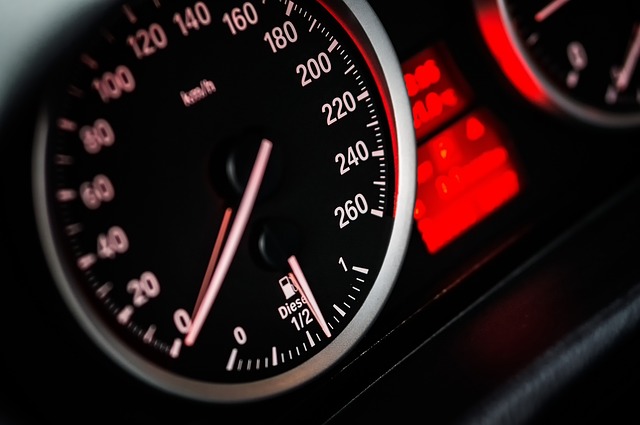To register a foreign-registered vehicle in the UK, you must obtain an accurate and authorized translation of your Vehicle Registration Certificate (VRC) into English or Welsh. This translation should be executed by a certified translator recognized by the UK's Driver and Vehicle Licensing Agency (DVLA), adhering to their stringent requirements for legal compliance. The DVLA-accepted translation, alongside the original foreign registration document and supporting paperwork, must reflect all technical details and content of the original document. Once your translated documents are accepted, the DVLA will issue a new UK Vehicle Registration Certificate, legally registering your vehicle and enabling you to drive it on UK roads in full compliance with legal regulations. Remember to use professional translation services that specialize in automotive documentation and are endorsed by accredited bodies like the Chartered Institute of Linguists or the Association of Translation Companies for the best results.
When navigating the process of registering a foreign-registered vehicle in the UK, one critical step is ensuring that your Vehicle Registration Certificate (VRC) meets the country’s linguistic requirements. This article delves into the essential aspects of VRC translation, outlining the role of certified translators, the legal stipulations, and the best practices for choosing a reliable translation service. From understanding the necessity of accurate translations to the final steps post-translation, this guide equips you with the knowledge to seamlessly register your vehicle in the UK. Emphasizing the Vehicle Registration Certificate Translation UK compliance, it serves as an indispensable resource for foreign vehicle owners transitioning to British roads.
- Understanding the Necessity for Vehicle Registration Certificate Translation in the UK
- The Role of a Certified Translator for Vehicle Documents
- Legal Requirements for Foreign Vehicle Registration Certificates
- Identifying Accredited Translation Services for VRC Translation
- The Translation Process: What to Expect When Translating a VRC
- Document Authentication and Apostille for UK Vehicle Registration
- Tips for Choosing the Right Translation Service for Your Vehicle Documents
- Common Pitfalls to Avoid When Translating Vehicle Registration Certificates
- Navigating the Post-Translation Steps for UK Vehicle Registration
Understanding the Necessity for Vehicle Registration Certificate Translation in the UK

When individuals purchase vehicles from abroad and intend to register them in the UK, it is imperative to secure a Vehicle Registration Certificate Translation that aligns with UK standards. This translation process is essential for two key reasons: legal compliance and seamless integration into the British vehicular system. The UK’s Driver and Vehicle Licensing Agency (DVLA) mandates that all foreign vehicle documents be accurately translated to facilitate registration. This requirement ensures that each imported vehicle meets the necessary regulatory standards and that its history, including specifications, ownership, and any past incidents, is transparent and verifiable in English or Welsh. A precise translation of the Vehicle Registration Certificate is not merely a formality but a critical step for drivers to legally operate their vehicles on UK roads. This translation must be carried out by a professional translator who is certified and recognized by the UK government, thereby avoiding any potential legal complications that may arise from inaccuracies or mistranslations. Accurate translations streamline the registration process, providing clarity and confidence to both the vehicle owner and the authorities overseeing road safety and compliance.
The Role of a Certified Translator for Vehicle Documents

When individuals acquire a vehicle from another country and intend to register it in the UK, one of the critical steps is obtaining a Vehicle Registration Certificate Translation that is certified. This translation serves as proof that the information provided on the foreign-language documents accurately reflects their original content. A certified translator plays an indispensable role in this process, ensuring that the translated version of the vehicle’s documentation meets the stringent requirements set forth by the Driver and Vehicle Licensing Agency (DVLA) in the UK. The translation must be precise and compliant with UK legal standards to facilitate a smooth registration process. Certified translators are proficient linguists who are accredited and authorized to translate official documents, such as vehicle registration certificates. Their expertise is crucial for accurately conveying the nuances of the source language into English, thereby avoiding any discrepancies or misinterpretations that could lead to delays or denials in vehicle registration. Furthermore, these translators provide a declaration with their translation, attesting to its accuracy and authenticity, which is a mandatory aspect of the UK’s official document registration requirements. This declaration essentially certifies that the translated document is a true and faithful representation of the original, ensuring legal compliance and trustworthiness for both the vehicle owner and the DVLA.
Legal Requirements for Foreign Vehicle Registration Certificates

When non-UK residents aim to register a foreign vehicle in the United Kingdom, one of the critical steps they must undertake is obtaining an accurate and certified translation of their Vehicle Registration Certificate. This legal document, often referred to as a logbook in the UK, contains vital information regarding the vehicle’s specifications, ownership details, and history. The Home Office requires that all foreign documents are accompanied by translations that comply with the UK’s stringent standards for registration purposes. These translations must be carried out by a professional translator who is officially certified to translate legal documents from the language of origin into English. This ensures that the information on the translated document is both precise and legally binding, facilitating the vehicle’s smooth integration into the UK’s transportation system. The certification process typically involves the translator signing a declaration confirming their expertise and the accuracy of their translation, alongside a stamp or embossed seal to authenticate the document’s authenticity. This due diligence is crucial for maintaining road safety standards and adhering to legal requirements set forth by the UK government for all imported vehicles.
Identifying Accredited Translation Services for VRC Translation

When navigating the process of registering a vehicle in the UK, individuals often encounter the necessity for a Vehicle Registration Certificate (VRC) translation if their vehicle’s documents originated from abroad. This requires a precise and authorised translation to comply with UK regulations. Accredited translation services specialising in VRC Translation are pivotal in this context, ensuring that the translated document reflects the original content accurately and is legally recognised by UK authorities. It is imperative to select a professional service provider with expertise in this niche area, as they must be associated with relevant bodies like the Institute of Translation and Interpreting (ITI) or the Association of Translation Companies (ATC), which guarantee the quality and reliability of their translators. These accredited services not only provide accurate translations but also offer certified translations stamped and signed by a registered translator, as required by the Driver and Vehicle Licensing Agency (DVLA). This certification confirms that the translation is a true and exact representation of the original document, facilitating a smooth vehicle registration process in the UK.
The Translation Process: What to Expect When Translating a VRC

When engaging in the process of registering a vehicle in the UK with a foreign Vehicle Registration Certificate (VRC), obtaining an accurate and certified translation is paramount. The UK Driver and Vehicle Licensing Agency (DVLA) requires that all non-English documents, including VRCs, be accompanied by a precise and authorised translation to facilitate registration. The translation process for a VRC involves several key steps to ensure compliance with both legal and linguistic standards. Initially, the translator must be adept in the languages of both the original document and English. They must then accurately convey all pertinent details from the VRC onto the translated document, including the registration number, vehicle make and model, owner information, and any other critical data.
The translation must be performed by a professional translator who is certified to provide official translations for legal purposes in the UK. This certification ensures that the translation meets the high standards set by UK authorities and is accepted without question. The translator will also provide a statement of accuracy, attesting to the faithful representation of the original document’s content. Additionally, the translated VRC should be provided with a clear photocopy or scanned image of the original document for comparison purposes. This due diligence safeguards both the individual registering their vehicle and the integrity of the UK’s vehicle registration system.
Document Authentication and Apostille for UK Vehicle Registration

When importing a vehicle into the UK, individuals must submit a completed Vehicle Registration Certificate (V5C) form along with proof of its country of origin and ownership. A key component in this process is the translation of any foreign language documents associated with the vehicle’s history or ownership. These translations must not only be accurate but also certified to meet UK legal requirements. The UK has stringent guidelines for document authentication, where translations should be executed by a professional translator who is accredited by one of the UK’s designated bodies, such as the Institute of Translation and Interpreting (ITI) or the Chartered Institute of Linguists (CIOL). This ensures that the translated documents are reliable and meet the standards required for UK vehicle registration.
Furthermore, the certified translation must bear an Apostille, a form of authentication issued under The Hague Convention. An Apostille verifies the translator’s credentials and the document’s authenticity, making it acceptable by UK authorities. For non-Hague countries, alternative legalization processes are available, such as embassy or consulate legalization. This step is crucial to avoid delays or rejection of your vehicle registration application in the UK. By ensuring that your Vehicle Registration Certificate Translation UK is both professionally translated and duly certified with an Apostille, you facilitate a smooth and efficient registration process for your imported vehicle.
Tips for Choosing the Right Translation Service for Your Vehicle Documents

When navigating the process of registering a foreign-registered vehicle in the UK, obtaining an accurate and certified translation of your Vehicle Registration Certificate is paramount. The chosen translation service should possess specialized expertise in automotive documentation to ensure compliance with UK legal standards. Look for translation services that are officially accredited by relevant authorities, such as the UK’s Home Office or Professional Translators’ Association (ATA). This accreditation confirms their ability to provide translations that are legally recognized and accepted for official purposes like vehicle registration in the UK.
Additionally, consider translation services that offer a team of professional translators who are not only proficient in both languages but also knowledgeable about automotive terminology and regulations. It’s advisable to opt for a service that provides certified translations, which come with a certificate of accuracy and a statement confirming the translated document’s equivalence to the original. This certificate is crucial as it authenticates the translation, thereby facilitating a smoother registration process without any legal impediments. Always verify the credentials of the translation service, read reviews, and ensure they have a proven track record of delivering high-quality, certified translations for vehicle documents in the UK context.
Common Pitfalls to Avoid When Translating Vehicle Registration Certificates

When navigating the process of registering a vehicle in the UK, foreign-registered vehicles necessitate the submission of a translated Vehicle Registration Certificate. This translation must be both accurate and certified to meet the stringent requirements set by the Driver and Vehicle Licensing Agency (DVLA). A common pitfall is relying on informal translations or machine translations, which may not hold the same legal weight as those performed by a professional translator with expertise in this specific documentation. The translated certificate must be a true and exact representation of the original document, with no deviations or omissions, to avoid delays or the outright rejection of your vehicle registration application. Additionally, it is crucial to engage a translator who is proficient in both languages involved and recognized by the UK authorities. This ensures that the translation not only meets language requirements but also adheres to the legal and formal standards expected by the DVLA. Translators should also be aware of the specific terminologies used in vehicle registration contexts, as incorrect translations of terms like chassis number or engine capacity can lead to complications in the registration process. By carefully selecting a qualified and experienced translator and adhering to these guidelines, you can successfully navigate the requirements for translating your Vehicle Registration Certificate in the UK.
Navigating the Post-Translation Steps for UK Vehicle Registration

When transitioning a vehicle into your ownership within the UK, it is imperative to secure a Vehicle Registration Certificate Translation if documentation is not in English or Welsh. This translation must be certified to validate its authenticity with the Driver and Vehicle Licensing Agency (DVLA). The process involves not only accurate translation but also proper certification by a professional translator who is accredited by relevant UK authorities, such as the Chartered Institute of Linguists or the Association of Translation Companies. This ensures that the translated documents adhere to UK standards and are recognized by the DVLA for vehicle registration purposes.
Upon obtaining a certified translation of your Vehicle Registration Certificate, you must proceed with submitting it alongside the vehicle, its original foreign registration document, and any other required paperwork to the DVLA. It is crucial to follow the prescribed format for the translation; it must be a complete and exact representation of the original document’s content, including all technical details pertinent to the vehicle’s registration. Once the DVLA confirms the acceptance of your certified translation, they will issue a UK Vehicle Registration Certificate in your name, completing the process of registering your foreign-registered vehicle in the UK. This step is vital for legal compliance and ensures that you can legally drive your vehicle on UK roads.
When navigating the process of registering a foreign vehicle in the UK, obtaining a Certified Translation of the Vehicle Registration Certificate is an indispensable step. This translation must be precise and compliant with legal standards to satisfy the Driver and Vehicle Licensing Agency (DVLA). The article has outlined the critical role of accredited translators in providing these translations, ensuring that all legal requirements are met without compromising the document’s integrity or the vehicle’s eligibility for registration. By following the detailed guidelines on selecting a reliable translation service and understanding the translation process, including document authentication and obtaining an Apostille if necessary, vehicle owners can seamlessly integrate their foreign-registered vehicles into the UK road network. It is advisable to heed the tips provided to avoid common pitfalls and ensure a smooth transition. For clarity, anyone requiring a Vehicle Registration Certificate Translation UK for vehicle registration should prioritize accuracy, legality, and professional service to avoid complications and delays.
